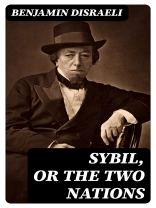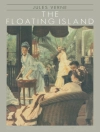In ’Sybil, or The Two Nations, ’ Benjamin Disraeli explores the stark social divisions within Victorian England, a period marked by industrial triumph and profound poverty. Disraeli employs a vivid narrative style, intertwining social realism with political commentary, as he portrays the lives of the upper and lower classes through the lens of his protagonists, Sybil Gerard and her noble counterpart, Charles Egremont. The novel critiques the negligence of the ruling class towards the working poor, delivering a powerful message about social responsibility and reform. Disraeli’s use of irony and engaging dialogue further enhances the novel’s impact, inviting readers to contemplate the moral obligations of society amidst economic disparities. Disraeli, a prominent statesman and novelist, drew on his experiences and insights into politics and society to craft this poignant work. As a member of Parliament and later Prime Minister, he was acutely aware of the socio-political tensions of his time. His mixed heritage and varied political career fueled his drive to advocate for the disenfranchised, making ’Sybil’ a personal and political manifesto emphasizing his belief in the necessity of bridging societal divides. Readers who seek a deeper understanding of the socio-economic issues of the Victorian era, accompanied by a compelling story, will find ’Sybil’ a thought-provoking and essential read. Disraeli’s masterful interplay of character and ideology not only enriches the narrative but also challenges readers to reflect on the enduring relevance of class structures, making this novel a timeless exploration of humanity.
Om författaren
Benjamin Disraeli (1804–1881) remains a seminal figure in British literary and political history. Disraeli carved his niche as a statesman, serving twice as the Prime Minister of the United Kingdom and played a pivotal role in the creation of the modern Conservative Party. However, Disraeli’s contributions were not confined to the political arena; he was also a respected novelist. Disraeli’s unique blend of political insight and literary talent is best exemplified in his novel ’Sybil, or The Two Nations’ (1845), a seminal work that elucidates the vast social chasm between the rich and poor in Victorian England. Through the story of the affluent Charles Egremont and the impoverished yet dignified Sybil, Disraeli explores the injustices arising from the Industrial Revolution and advocates for social coherence. The narrative’s romantic undertones and engagement with social issues are emblematic of Disraeli’s literary style, which often merged his political ideals with fictional storytelling. ’Sybil’ is considered part of his political trilogy, alongside ’Coningsby’ (1844) and ’Tancred’ (1847), which further elaborate his thoughts on Tory democracy and the importance of tradition coupled with reform. Disraeli’s works remain of scholarly interest for their prescient commentary on social stratification and personal advancement in the context of 19th-century British society.












